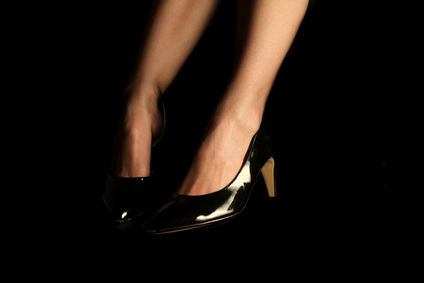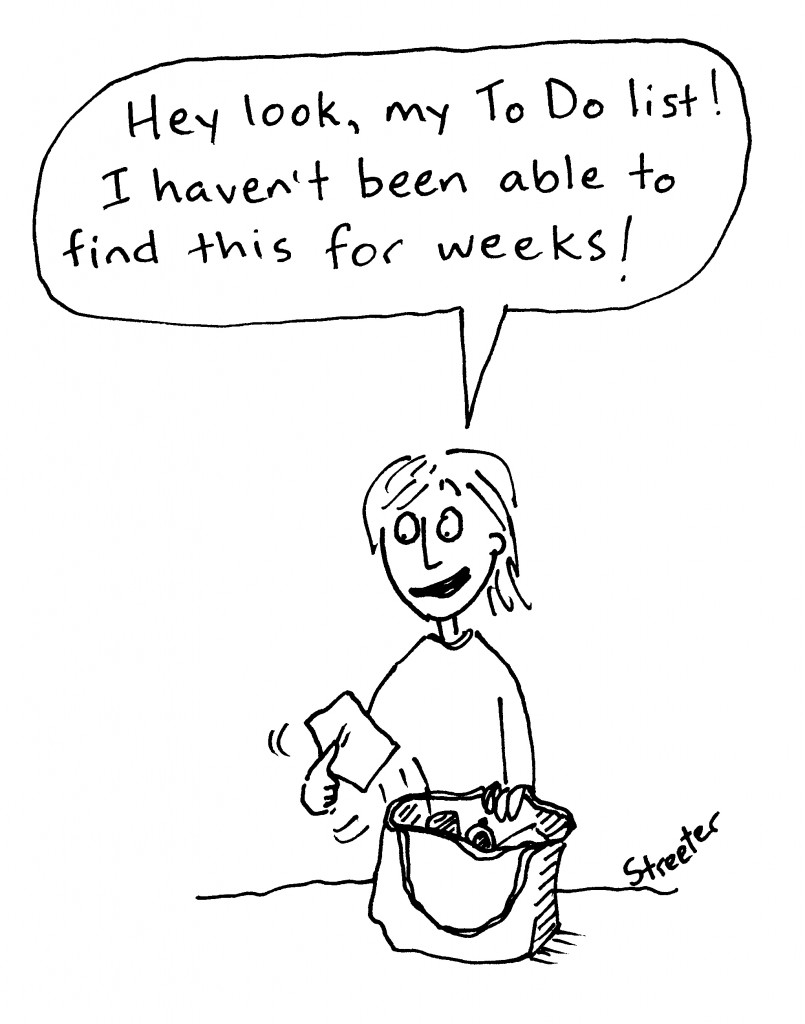Heels, harassment, tech and science. Oh, my…
I don’t know if you’ve been keeping your ears to the interwebz of late but there’s a helluvalot of harassment going on and it doesn’t seem to be getting any better. Roughly a week ago, all hell broke loose when writer Danielle Lee was called an urban whore for requesting payment when she was solicited for a guest blog post. Just prior to that, Writer Monica Byrne publicly named Scientific American Editor and Science Writers Online Conference Founder Bora Zivkovoc for sexual harassment. And this week, a woman attending a tech conference was publicly ridiculed for wearing heels, although the poster, startup entrepreneur Jorge Cortell, shielded his actions by claiming to be concerned for her foot health.
These examples are simply the tip of the iceberg. For years, I have watched as female colleagues trying to excel in the tech or science worlds come up against one barrier after another. They are ridiculed, harassed, disrespected and sometimes, downright hated by their male peers. In science conferences, women are often marginalized and excluded from speaker lists, not because they lack talent but because they are women. For example a recent Report in the Journal of Evolutionary Biology shows that only 16% of invited speakers at the European Society for Evolutionary Biology Congress between 2001 and 2011 were women. And we wonder why girls often choose liberal over science arts or math or tech.
When I posted the Atlantic article referenced above (heels and tech) on my Facebook page, an interesting conversation ensued; a friend challenged me to think outside my own box and asked where my bar is, that is the bar beyond which what is acceptable becomes downright wrong. The example he used was a woman posing provocatively in a short skintight, low cut dress and heels, which he asked me to comment on. And I did so, albeit privately.
My argument to him and to you is simple:
Choice and consequence.
I believe that it’s time for the double standard that is so pervasive in tech and science and in other disciplines to disappear. I believe that as women, we have choices to make and we have to live with the consequences of those choices. Rather than asking me to define what I mean by provocative and accuse me of being judgmental, understand that as a woman, I know the choices that women make to fit in, to stand out and to achieve. Sometimes, those choices are less than palatable to some and misread by others. And then the name calling and bad behavior starts, you know, the slut shaming.
Choice and consequence. It’s pretty simple.
If a woman makes a choice to wear heels to a conference, then it stands that the consequences are hers’ and hers’ alone. Will she lose her job if her heels are deemed inappropriate? Perhaps yes and perhaps no. Personally, I love nice shoes and boots and over time, I’ve come to appreciate heels more than ever. Is it foot forward (or back) healthy? Heck no. But I make a choice that I have to live with, whether or not that choice results in blisters, sore feet or heaven’s forbid, a cat call. I know why I am making that choice and to me, the interpretation that follows lies solely in the mind and eye of the beholder.
Perhaps I am lucky. In my work, much of which is male dominated, I’ve never been called out for my choice of footwear. The men I work with are much more interested in what I am saying and contributing to the conversation. I’ve never been accused of being a whore because I requested payment for access to my skills. And the cat calls as I walk down the street? Fortunately for me, those days are mostly over because I am pretty invisible; that’s what happens when you cross the magical line of 50 years of age. However, when they did occur, more often than not I thought that the issue lay with the person doing to cat calling; not with me.
I am concerned. I fear that we live in a time when sexual harassment is akin to milquetoast; it’s so common it’s not that interesting any longer. That is, until someone speaks up. And that someone, more oft than not, is then further accused of ruining a man’s [life, marriage, career, fill in the blank]. We have grown to expect that there will be weekly reports of a teenaged girl being gang raped and bullied, where a young celebrity will be ridiculed for behaving provocatively in a culture that has come to expect that provocation while the man can dance idly by and accept the affectations, we have become mute and dumb in ways unimaginable.
I’m stumped.
Choice. And consequence. It’s in our hands and our hands alone to do right by our young girls so that they grow up in a world where achievement is not frowned upon but celebrated for the sake of achievement, where she can feel comfortable in heels because they make her feel taller or more powerful or simply, pretty, or where tech geeks or scientists don’t assume that the ‘do not enter’ sign on the club door can be inadvertently applied at will.
What do you think?
Read More
Wednesday Bubble: What did you say?!
 When it comes to menopause, the old adage “the better to hear you with, m’dear’ no longer applies. In fact, if one is to believe study findings reported a few years back, women start to lose their hearing after the age of 50, which coincidentially corresponds fairly closely with menopause in the majority. It’s true that from a gender standpoint, we may have an ‘ear up’ compared to our male peers, who begin to suffer age related hearing loss as early as age 30. However, comparatively, it appears that women go through a relatively rapid decline in hearing starting with the loss of estrogen. Moreover, the study showed that over a 7 to 8 year time period, women who had only been in menopause less than four years had a greater than expected decline in their hearing, especially in their left ear while those in the ‘pause five to seven years had greater hearing loss in the right ear. This ‘yin/yang’ hearing tended to balance out and slow after 8 to 13 years.
When it comes to menopause, the old adage “the better to hear you with, m’dear’ no longer applies. In fact, if one is to believe study findings reported a few years back, women start to lose their hearing after the age of 50, which coincidentially corresponds fairly closely with menopause in the majority. It’s true that from a gender standpoint, we may have an ‘ear up’ compared to our male peers, who begin to suffer age related hearing loss as early as age 30. However, comparatively, it appears that women go through a relatively rapid decline in hearing starting with the loss of estrogen. Moreover, the study showed that over a 7 to 8 year time period, women who had only been in menopause less than four years had a greater than expected decline in their hearing, especially in their left ear while those in the ‘pause five to seven years had greater hearing loss in the right ear. This ‘yin/yang’ hearing tended to balance out and slow after 8 to 13 years.
Why does this matter, anyhow?
Well, hearing loss in the left ear is linked with a lower ability to hear sounds in the high frequency range and the extremely rapid loss of this attribute in the first few years of menopause ultimately affects women’s communication abilities. The Midwest Audiology Center in Greenfield WI explains it as follows:
In the English language, vowels are low frequency sounds that bring power to our speech, but contribute less to understanding. Consonants are more mid and high frequency sounds that bring understanding to our language. It is very common to lose high frequency hearing sensitivity at a greater amount than we lose our low frequency hearing sensitivity.
So, when we lose our ability to hear high frequencies, we know when someone is speaking to us but we can’t completely understand what they are saying.
A bit of a dilemma, don’t you think?
Importantly, this appears to occur without prexisting middle ear conditions or undue exposure to noise; in other words, estrogen the good queen turns into estrogen the wicked witch, wreaking havoc by taking away her protective powers. A bubble burst? You betcha.
I can’t offer any solutions at this juncture but I would imagine that the more we can protect our hearing now, the better we may be later in life. Turn down the volume before it turns on you!
Read MoreGuyside. As advertised on TV: selling men short
It’s perhaps the easiest thing in the world to criticize TV advertising. Everybody sees an ad and find it puerile, stupid, offensive, or something. And there’s no doubt that women have been very poorly treated by all sorts of ads in the past and now, too. Objectified, used purely for their sexuality, portrayed as stupid — there’s a legendary description of advertising as “Two Cs in a K.” The K stands for kitchen; I’ll let you figure out what the C stands for.
But it ain’t so great for men either, out there. My personal favorite ads? Just for Men. Oh, Just For Men, how you sell men short. I’m divided over which of their campaigns is more patronizing and offensive: the one with two adorable daughters telling their dad “it’s time”:
The inexplicable “Beard Baby” ad:
Or the one with three retired athletes humiliating themselves in front of bimbos:
It’s not just hair commercials for older dudes. It’s razor commercials, and even commercials aimed at younger guys (AXE, anyone?). I wouldn’t even call it subliminal — it’s quite clear that for advertising aimed at men, the message is: “Use our product, get laid.” That makes very good sense… if you’re advertising an erectile dysfunction drug.
What bugs me about the advertising aimed at me is that the only reason for exercise, for grooming, or other products or services aimed at men, is heterosexual sex. Don’t get me wrong — I’m in pro-heterosexual sex. I just think (a) there’s more to the world than just a man and a woman having sex; and (b) there are more motivating factors in the world than that.
As a man, my frustration with ads targetting me makes me think about the ads targetting other demographic segments. I don’t doubt that other groups are as poorly served by TV ads aimed at them as men are by ads for “men’s products.” And so it’s no wonder that there’s so much kibitzing, good-natured and otherwise, about the poor job these ads do to communicate their messages.
Think of the difference between this razor commercial:
And this one:
To me, the difference is one of tone. One is cynical, relying on the brain-penis connection. The other is smart and self-referential, acknowledging that this really is just body wash, after all.
The success of the Old Spice ad campaign was phenomenal. But we need to continue to teach advertisers that men are more than leering adolescents, and that when you make ads like these, you sell men — and women — short.
Read MoreSend them an angel: IMAlive & Suicide Prevention
Did you know that suicide is the third leading cause of death among American teens? Or, that the vast majority of these young people who think about suicide or make actual suicide attempts have underlying mental disorders?
Pretty shocking, isn’t it?
I would like to take a distinctly different path on Flashfree this week and share a story with you, a story about a young man with a promising future and a unique vision who didn’t see what others saw in him. This past July, this beautiful, vibrant 17-year-old took his life, and with it, an unrealized life path that would have definitely turned out very differently than the pathway that his despair showed him. I know his parents, I heard firsthand, the anguish in his mother’s voice, and I witnessed the outpouring of love that would have been his for the taking. I wish he had known.
Teen suicide is alive and real. And unless we take action to start helping our teens, we will likely lose a huge piece of our and their future.
Yesterday was World Suicide Prevention Day. However, the entire week marks National Suicide Prevention Week, comprising efforts to raise global awareness of the warning signs of suicide and help promote help for those who need it most. In honour of this week, and most importantly, of teens like my friend Jacob Weiskopf (who, because of an underlying depression, may be unaware of the choices that they can make to get their lives back on track), I am raising money for the Kristin Brooks Hope Center. This money that will go toward making the IMAlive online help line a 24-hour/7 days a week reality for teens and adults who are likewise, considering a path of no return. And, I am asking you to join me and some of my friends on Team Jacob and make the 24-hour window a reality. A little – $10, $20 – can go a long way toward our goal of $10,000.
One life is huge. How about it? Can we send Jacob and others an angel?
Read More
Wednesday Bubble: This is your brain on menopause
Yup, it’s that old tell tale sign of middle age, overload and what else? Menopause? In a newly published online review, researchers report that between perimenopause and postmenopause, there are significant declines in executive function, that is, the way that the brain connects past experience with present action. Executive functioning allows people to plan, organize, strategize, recall details and manage time and space. Poor executive function means that some or all of these tasks may be difficult. However, it also affects working memory, that is, what we see in our ‘mind’s eye.’
In a review of four scientific trials conducted in almost 2,000 women, the findings were pretty stark:
Menopause is a period associated specifically with a decline in delayed verbal episodic memory, i.e., the ability to recall words and paragraphs and recall them after a delay, and a small decline in pheonemic verbal fluency, that is saying as many words that begin with a certain letter within a specified timeframe. However, there is a slight light in this tunnel; the researchers explain that these declines are modest, at best. However, even when they took into account factors like age, the results held.
None of this is surprising; I find that I rarely recall the reason I’ve come into a room or why I always forget an item at the grocery store. I find myself staring at web pages and wondering why I am there. And just yesterday, I came to the realization that I actually knew someone that I was trying to contact for work, after two days of trying.
Huh; go figure.
I’m not quite sure what to do with this loss of my brain power, other than to remind myself that I am in good company.
What about you; what did you forget today?
Read More
In the Flash: June/July Roundup
Can you believe that it’s August already?! I feel as though the Summer has flown by and that I’ve been unconsciously busy for most of it. Since it may be the case that between work, vacations and celebrations you’ve missed the best of June and July, I wanted to pull some posts from the recent archives that demand your attention.
Without further ado, here’s what you’ve missed, In the Flash…
- Who put the men in menopause…men! Who would have thunk it. But evolutionary research suggests that men and male proclivity for younger mates in order to perpetuate the race created menopause. Seems a bit out there but there you have it!
- Worried about skin aging? Wear sunscreen! And try to get more sleep. Yup, this time I’ve dished up two separate factors that will age your skin quicker than you can apply that expensive anti-aging moisturizer. And you absolutely need to pay attention!
- Next time you need that caffeine fix, be mindful of where you are going to get it. I’m Re-spilling the beans on coffee and caffeine and the news may cause you to think twice before dropping that money on a cup of espresso.
- Guyside: Does my butt look big in this world? Flashfree’s got a new columnist and he’s a male who’s not afraid to show his feminine side what it feels like to be a man. Ladies – you definitely want to direct your men to this monthly column written by the incredible Bob LeDrew.
- Is estrogen safe? Has the nail come out of the estrogen coffin? Or is the pro-hormone team trying once again to pull a fast one? You’ll want to read this piece for the latest news on the hormone front.










